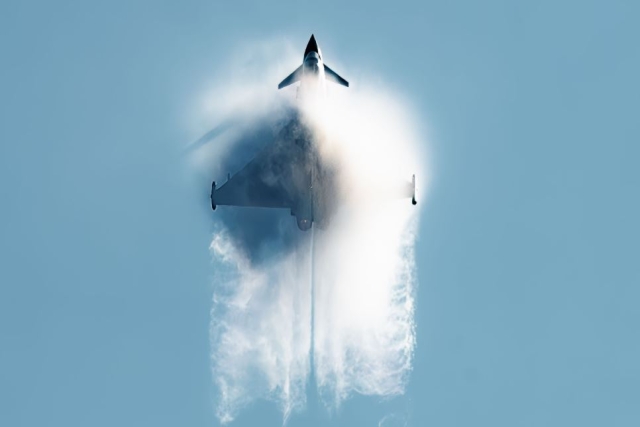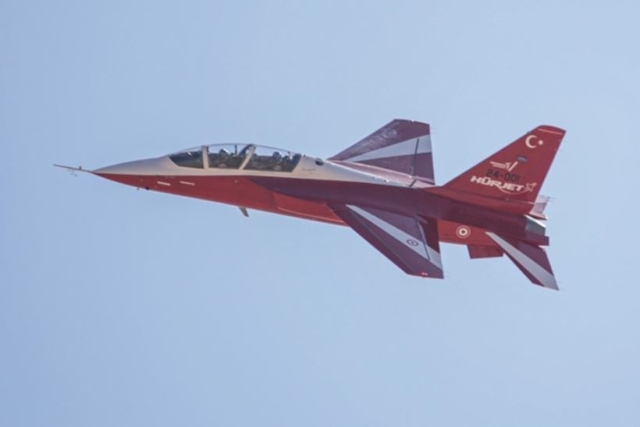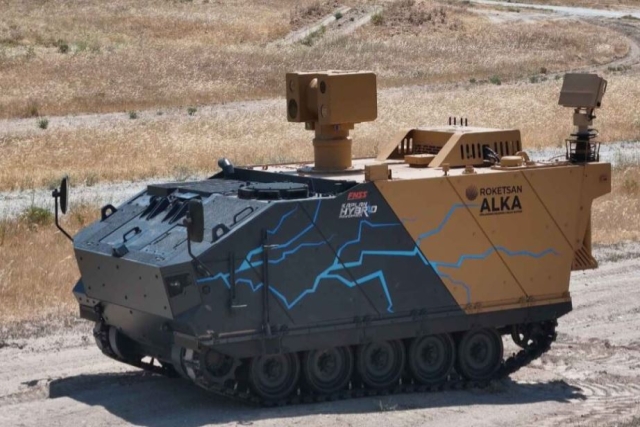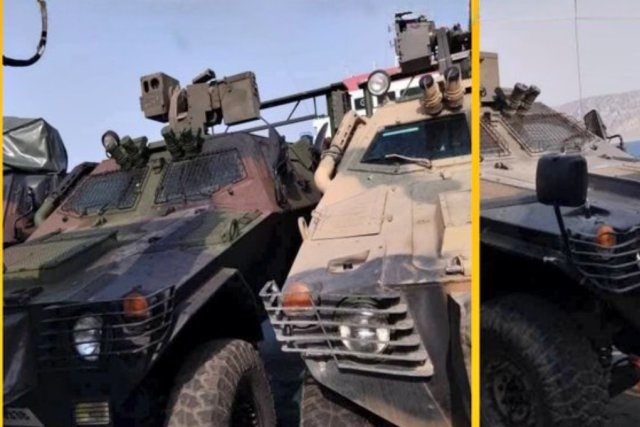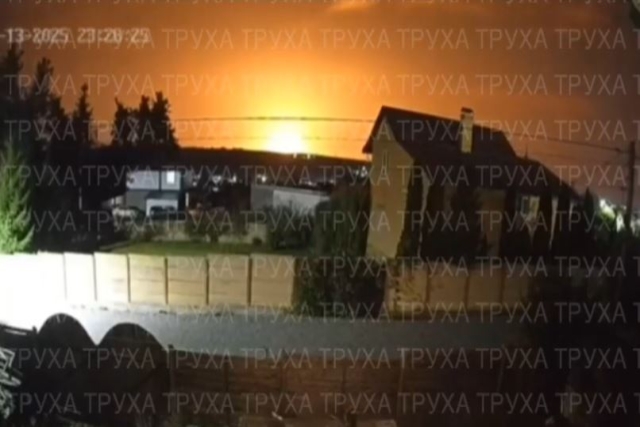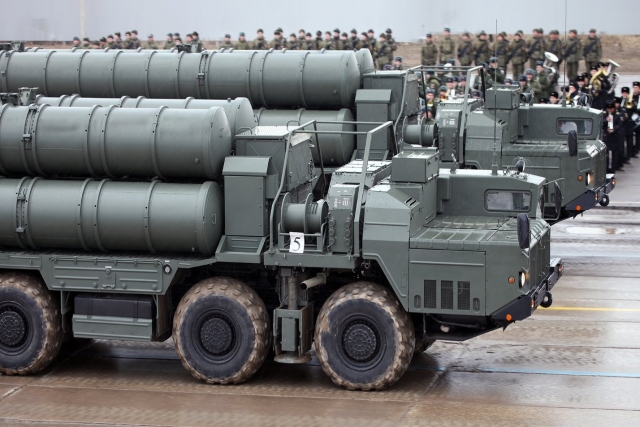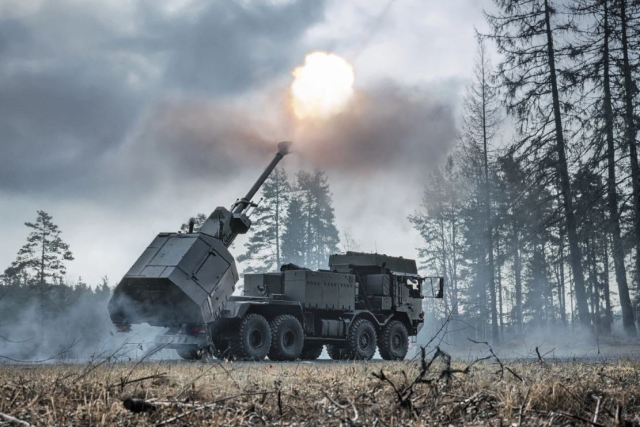Turkey Tests New Thermobaric Bomb, Bunker Buster Capable of Piercing Deep Concrete
Ankara unveils deep-strike bomb, thermobaric warhead, and upgraded missile system
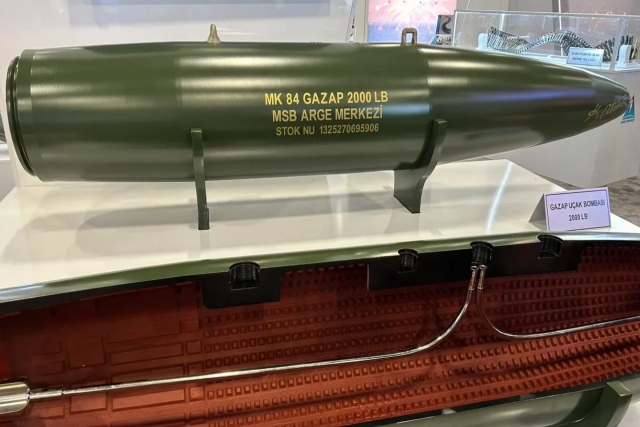
Turkey has tested two heavy-class bombs, the GAZAP thermobaric fragmentation bomb and the NEB-2 “Ghost” concrete-piercing munition.
This is according to state broadcaster TRT.
The GAZAP, weighing 2,000 pounds (907 kilograms), was developed by the Research and Development Center of the Turkish Ministry of National Defense. First revealed at the IDEF 2025 defense exhibition in Istanbul, the bomb features upgraded explosive composition and body design, delivering higher blast pressure and enhanced fragmentation.
“The qualification and certification processes are complete, and the bomb is ready for operational use,” a defense official told TRT. According to the source, the GAZAP produces nearly three times more metal fragments than previous Turkish variants.
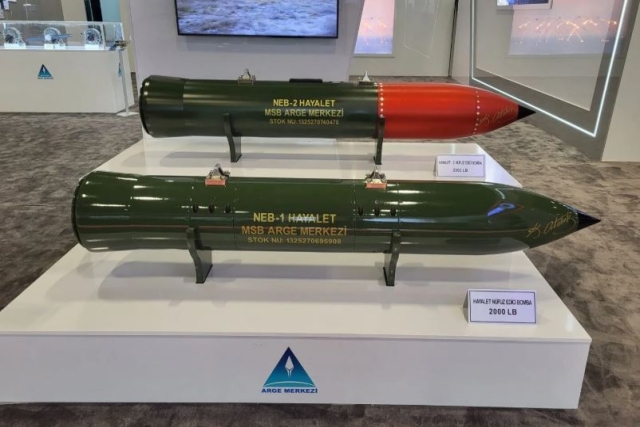
The NEB-2 Ghost, also weighing 2,000 pounds, is designed to target heavily fortified underground and concrete-protected facilities. A defense official claimed the NEB-2 can penetrate up to 7 meters of C50-grade concrete—roughly three times stronger than what typical U.S. bombs such as the MK-84 or BLU-109 can breach.
“U.S.-made bombs typically penetrate 2.4 meters of C35-grade concrete. The NEB-2 can go through 7 meters of C50-grade,” the official said. However, the assertion is debated, since such performance is typically only observed with heavier munitions like the U.S. GBU-28 series when deployed from high altitudes.
In a reported test, the NEB-2 was dropped on an island target, digging 90 meters into the ground and triggering landslides and structural collapses across a 160-meter-wide area. Experts suggest the test likely occurred on soft soil, not dense rock, given the reported depth of impact.
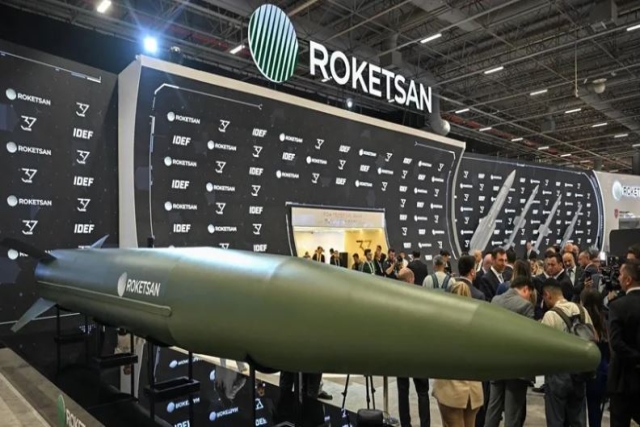
In a related development, Turkish firm Roketsan unveiled the TAYFUN Block-4, a longer-range ballistic missile variant. With a range of up to 1,000 kilometers, the missile reportedly features enhanced speed and maneuverability to improve its ability to bypass air defenses.
Weighing about 7.3 tons and measuring 10 meters in length, the TAYFUN Block-4 marks Turkey’s continued push to expand its indigenous long-range strike systems amid growing regional tensions.

